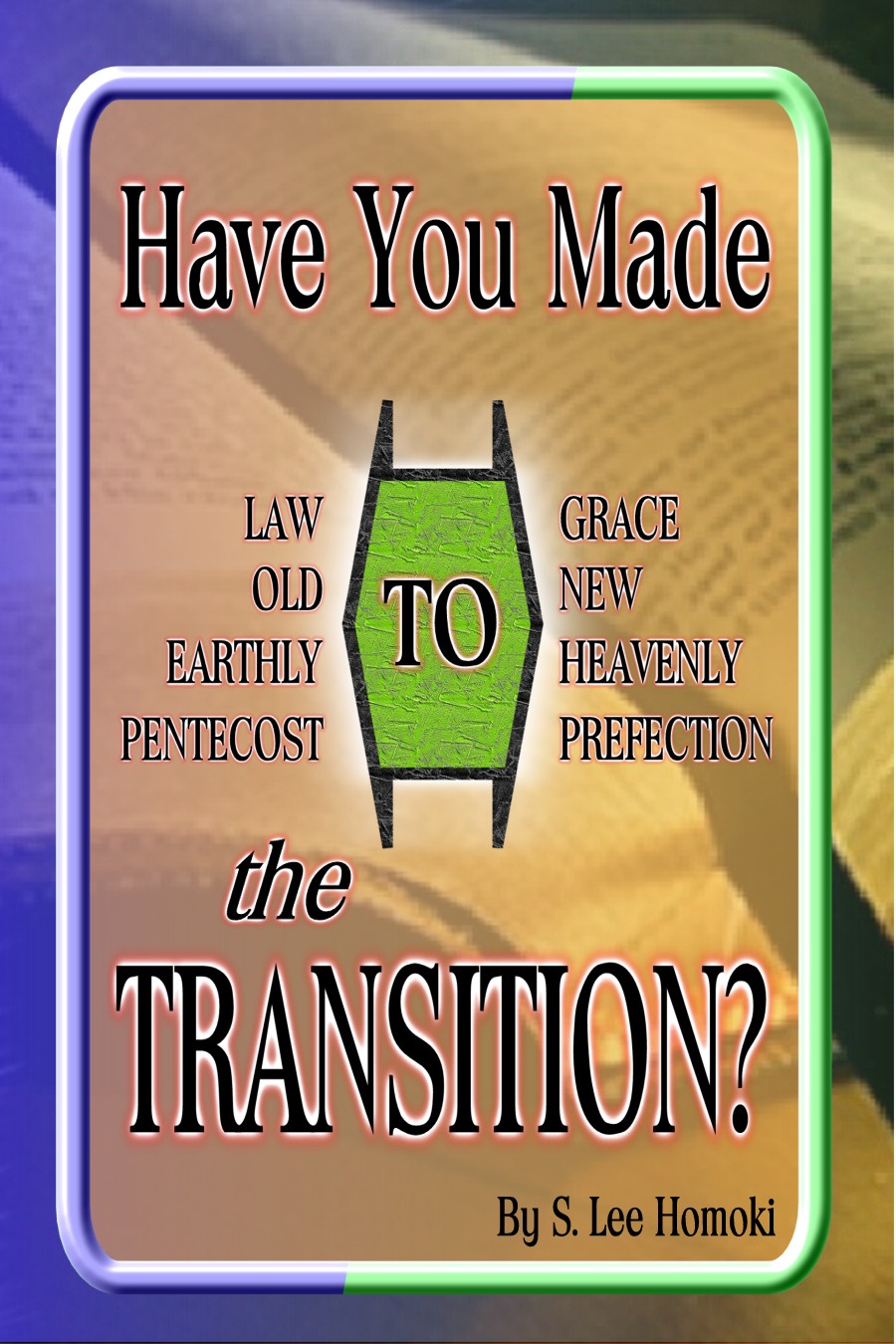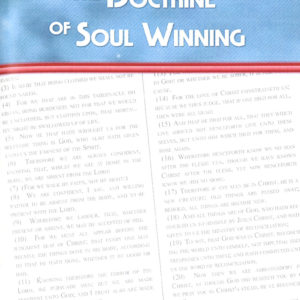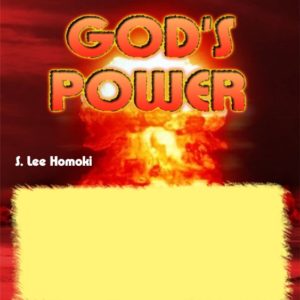Description
Have you transitioned with God from Law to Grace? A dispensational chart with number explanations. Comes in a pack of 10.
MESSAGE:
THE JEWISH DISPENSATION
Key: Color coded to chart on pages
1) Israel’s prophesied and long-awaited King and Kingdom (Jer. 33:15-17) are announced “at hand” by John the Baptist (Mt. 3:2), Jesus Christ (Mt. 4:17,23), the Twelve (Mt. 10:7), and the Seventy (Lk. 10:1-20). This announcement was made to the Jews only.
2) Israel rejected their King at the cross (Jn. 19:14-15; Lk. 19:14). Their rejection was overruled by Christ’s prayer in Luke 23:34, and they were provided a second opportunity to accept the King and the Kingdom.
3) Israel’s King and Kingdom are graciously offered in the “Gospel of the Circumcision” (Gal. 2:7) by Peter (Acts 3:19-24), Stephen (Acts 6:7-7:60), the Dispersed Ones (Acts 8:1-4), and Philip (Acts 8:5-40).
This offer was made only to the Jews. It was not until Acts 10 that the Word of God came to Cornelius, the Gentile, by the mouth of the Apostle Peter – and then not without the Jews contending with him for having done it (cf. Acts 11:1-3, 19).
This offer was confirmed by over 100 recorded miracles, signs, and wonders during the Acts period (Acts 5:12-16).
This offer, when accepted by faith, was associated with the prophesied ministry of the Holy Spirit (Joel 2:28-29; Isa. 32:15; 44:3; Ezek. 36:25-28; 39:29; Mt. 3:11; Mk. 1:8; Lk. 3:16; Jn. 1:33; 7:38-39; Acts 2:16-21); water baptism (Acts 2:38,41; 8:12,36; 9:18; 22:16); and legal ceremonies (Acts 15:5; 21:20-26).
4) Israel progressively rejects the offer of the King and the Kingdom beginning with the stoning of Stephen in the Jewish capital city of Jerusalem in 33 A.D. (Acts 7:51,59),
[4a] then in Antioch in 45 A.D. (Acts 13:46);
[4b] then in Corinth in 54 A.D. (Acts 18:6);
[4c] and finally in the Gentile capital city of Rome in 63 A.D. (Acts 28:27-28). This was in accordance with Isaiah 6:9-10 and 29:10-12, and is followed by the gradual withdrawal of miracles, signs, and wonders (Rom. 8:22-23; 1 Cor. 2:3; 13:8-13; 2 Cor. 4:16; 5:2; 11:29; 12:7-10; Gal. 4:13).
Israel’s Kingdom church leaders at about this time are made aware of the changing dispensations. They set aside their Kingdom commission (Mt. 28:19-20; Acts 1:8) and confined their ministry to Israel only (Gal. 2:7-9).
5) Israel, God’s elect agency, is temporarily set aside near the closing of the Book of Acts (Rom. 11:11-20); and miracles, signs, and wonders cease. However, the Jews, as a nation, continue to have the Gospel preached to them and enjoy the religious privileges associated with their temple worship until 70 A.D. (Isa. 6:11-12).
6) Israel, in judgment, is dispersed, and Jerusalem is destroyed in 70 A.D. (Mt. 22:7; Joel 2:11; Isa. 29:1-9. See Old Scofield Bible, page 1204, point 2).
7) Israel, by grace, will be restored as an elect agency after the Rapture of the Church which is the Body of Christ (Rom. 11:26-27 with Isa. 29:18-19; Ezek. 36:24-28). Then miracles, signs, and wonders (Lk. 21:10-11, 25; Rev. 11:3-13; Mk. 16:17-19 with Isa. 24:19-23; 28:11; 11:8; 65:20-22; 33:24), and legal ceremonies will be the order of the day (Jer. 33:18).
THE CHURCH DISPENSATION
1) Paul, the Apostle, was saved (Acts 9:1-22) and chosen to receive the Revelation of the “Mystery” which was also called “the Dispensation of the Grace of God” (Eph. 3:2; 1 Cor. 9:17; Col. 1:24-26; Gal. 1:11-12, 16-17. See the Old Scofield Bible, page 1252).
?) God’s sacred surprise is the Church, which is the Body of Christ. This is the new unprophesied elect agency for the continued execution of the plan of God (Eph. 3:1-11). This new agency is exclusively related to “the Mystery” or the “Dispensation of the Grace of God.”
2) Paul was commissioned to a three-fold ministry during the Acts period (Acts 9:15 with Acts 13:3,47; 26:16-19).
First, Paul had a ministry of confirmation. Paul preached to the Jews concerning Jesus, the promised Messiah (Acts 13:14-41; 18:5; 26:22; 28:23).
HENCE, Paul went to the Jews first (Rom. 1:16 with Acts 13:5,14,46).
HENCE, in Paul’s Acts ministry and his first six epistles, he performed many miracles, signs, and wonders (Acts 19:12), and legal ceremonies (Acts 16:3-4), “because of the Jews” (Acts 16:3; cf. 1 Cor. 9:20-23; 10:32).
Secondly, Paul had a ministry of revelation. Paul taught the unsearchable (unprophesied) riches of Christ (Eph. 3:8), i.e., the Gospel of Uncircumcision (Gal. 2:7) or the ministry of reconciliation by grace alone (2 Cor. 5:18-19; Eph. 2:8-9). This means that Paul preached the Dispensation (fellowship) of the Mystery (Eph 3:9).
Thirdly, Paul had a ministry of condemnation. With each advance of the Gospel of the Grace of God toward the Gentiles, comes a pronouncement of condemnation (Acts 13:46; 18:6; 28:26-28).
3) The gradual growth of the Church, which is the Body of Christ, is now seen:
[3a] in Antioch in 45 A.D. (Acts 13:46);
[3b] in Corinth in 54 A.D. (Acts 18:6);
[3c] and finally at Rome in 63 A.D. (Acts 28:27-28). Here we see God making the transition from the Jewish Dispensation to the Church Dispensation.
4) Paul’s prison epistles show that after Israel is set aside, the Gospel is preached to the nations without racial priorities (Eph. 2:11-22; 3:6); without miracles, signs, and wonders (1 Tim. 5:23; 2 Tim. 4:20; Phil. 2:25-29); and without legal ceremonies (Phil. 3:8-14). The believer, upon accepting the Gospel of Jesus Christ by faith, is immediately Spirit-baptized into the invisible and universal joint-body of Christ by the unprophesied ministry of the Holy Spirit (1 Cor. 12:12-13), and the believer is blessed with all spiritual blessings in heavenly places (Eph. 1:3).
5) The new elect Church agency continues to operate today under the Pauline commission of 2 Cor. 5:14-21; 2 Tim. 2:2; Phil. 4:9; and Eph. 3:9.
6) The Church which is the Body of Christ will continue to execute the plan of God until the Body of Christ is complete (see Old Scofield Bible, page 1205-6, point 2). At this unknown point in time the Body of Christ will be raptured (1 Thess. 4:16-17).
CONCLUSION
Many good, honest, and sincere people believe that Christians ought to speak in other tongues and have gifts of healing, miracles, visions, dreams, and discernments of spirits, etc. They believe that if a person is sick he can be healed by being anointed with oil and laying on of hands. Others believe healing is accomplished by placing a blessed handkerchief on their sick bodies. Still others believe in observing the Sabbath, the Law, and even baptizing for the remission of sins. They believe this because they have read it in the New Testament.
On the other hand, there are many good, honest, and sincere people, equally knowledgeable of the New Testament, who reject these same miracles, signs, wonders, and legal ceremonies as practices for Christians today. Question: what makes the difference between those opposing opinions? Answer: some have made the transition from the Jewish Dispensation to the Church Dispensation, and others have not. Failure or refusal to make this transition accounts for most of the differences and confusion in many churches today.”
CHART IS INCLUDED INSIDE THE TRACT




